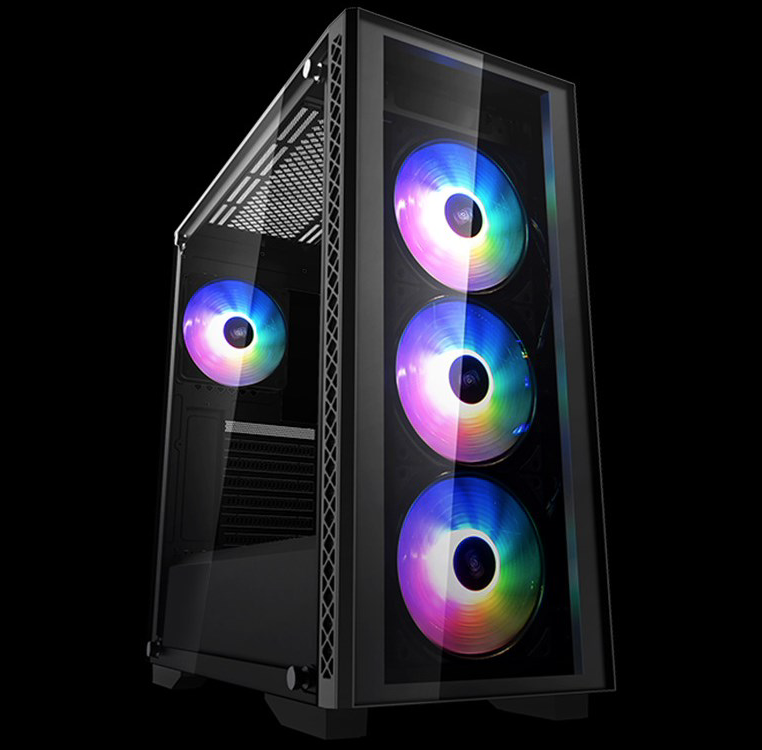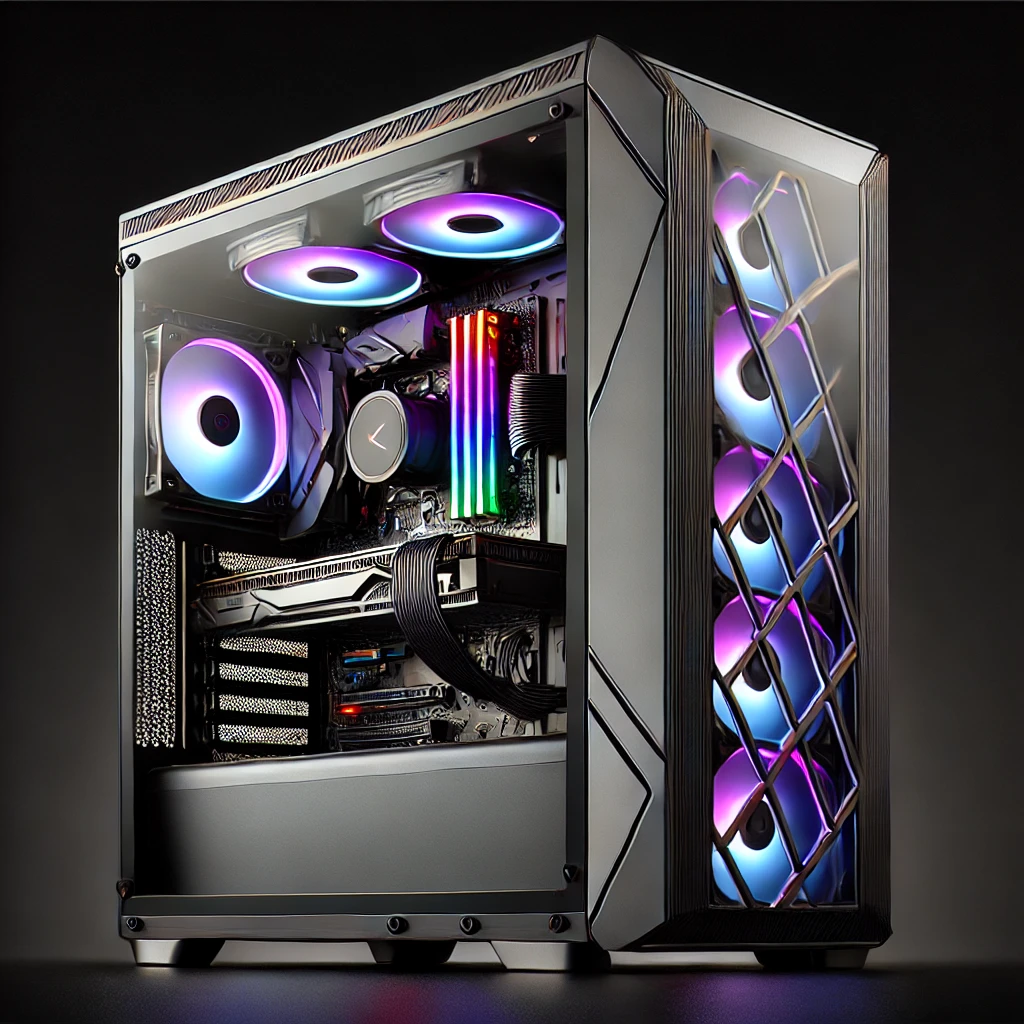Your cart is currently empty!

Back in the early days of computer gaming. The computer case was tan. If you were lucky you got TAN with a few stickers. Otherwise it was different colours of TAN. I’m not kidding. This was one of the reasons why the iMac was such a big deal because it offered something other than Tan. These days computer cases can be a work of art. I have to say … I like that.
While I double that anyone will ever see my computer case I do like the idea of LEDs and other cosmetic features. 
Decision that often gets overlooked. While the graphics card, CPU, and RAM are the stars of the show, the computer case plays a pivotal role in your gaming experience. It not only houses all your components but also contributes to airflow, aesthetics, and overall functionality. Here’s a comprehensive guide on how to choose the best computer case for your gaming rig.
1. Size Matters
Computer cases come in various sizes, from compact Mini-ITX cases to massive full-tower behemoths. Your choice should depend on your components and the space you have available. Smaller cases are ideal for those with limited room and who prefer portability, while larger cases offer more room for upgrades and better airflow.
Some of the old cases I worked on in the past were a nightmare to work on. The reason for this is that I have big hands and could barely reach into some of the deeper parts of the computer case. I was lucky to be able to remove the hard drive most of the time.
That said the newer cases are HUGE offering all kinds of room for someone like me to reach in and install or remove the component that I need.
2. Airflow and Cooling
Efficient cooling is vital for gaming PCs, as overheating can hinder performance and longevity. Look for cases with good airflow, featuring multiple fan mounts and mesh panels. Some cases even come with pre-installed fans, which can save you money and time.
We are going to have a whole post about fans so I will focus on the part that involves the case. When looking at the a computer case it is important to make sure you mark down all the sizes of the fans it can support. I say this because when I worked at a different computer store in Katoomba a customer had perched all kinds of parts and wanted us to build the system for them. Their problem was none of the fans fit.
3. Cable Management
Cable management might not be the most exciting aspect of PC building, but it’s essential for airflow and aesthetics. A case with ample cable routing options and tie-down points will make your build cleaner and airflow more efficient.
In the old days of the tan computer case, Cable management was limited. Though when buying a case take a look at some of the cable management options
4. GPU Compatibility
Ensure your chosen case can accommodate your graphics card’s length. Some high-end GPUs can be quite lengthy, and having to return a case because your GPU doesn’t fit is a hassle you’d rather avoid.
Nothing worse than finding out that your components will not fit into the case you purchased. While some of the larger units this will not be a problem. You should get a good idea of the size of the graphics card … just in case.
5. Storage Space
Consider your storage needs. If you plan to use multiple hard drives or SSDs, ensure the case has sufficient drive bays. Many modern cases also offer hidden compartments for cable management and storage, keeping your build neat and tidy.
6. Aesthetics
Your gaming PC is a reflection of your personal style. Choose a case that appeals to you visually. Some cases come with RGB lighting, tempered glass panels, or unique designs. Don’t underestimate the power of a sleek and stylish case to enhance your gaming setup.
I have decided that the case itself will be fairly simple. I do not need anything crazy like my friends “Batman” Themed case.
One of the things that I really like with the modern cases are the glass side panels. This was something that was unheard of in the days of Tan systems.
7. Build Quality
Invest in a case made from quality materials. Sturdy cases not only protect your components but also last longer. Steel and aluminum cases are excellent choices for durability.
8. Dust Filtration
Dust is the enemy of any PC build. Look for cases with dust filters on intake and exhaust fans to keep your components clean and running smoothly.
9. Port Accessibility
Make sure the case has the right number and types of USB ports, audio jacks, and any other connectivity options you need. Having to use adapters can be inconvenient.
Thus is a big one. As a Mac Guy I tend to have all my ports on the back of the system. The problem is that there are some devices that I like to switch out often. While reaching behind a computer and pulling USB cables seems like a good idea if you pull out an external drive while it is writing that could be bad.
I am looking at the Deepcool Matrexx 50
| · Tempered glass side-panel and the front panel. |
| · Support installation of 120/140/240/280/360mm radiator in the front:120/140/240mm radiator on the top,120mm radiator in the rear. |
| · 210mm wide tower compartment with 24mm clearance for cable management. |
| · Supporting 165mm (max) CPU cooler height. |
| · Support 370mm (MAX) long Graphics Card installation. |
As a mid-tower case, MATREXX 50 ADD-RGB 4F LD is endowed with abundant space that supports up to E-ATX motherboard. With two large air intakes and an air exhaust, optimized airflow is guaranteed to keep your components cool. MATREXX 50 ADD-RGB 4F LD provides you with great building and using experiences
While not too fancy I do like the price. We will be selling them for $130. Once again I am building this Gaming PC on a budget.
Discover more from LithGeek Custom Gaming Computers
Subscribe to get the latest posts sent to your email.
by

